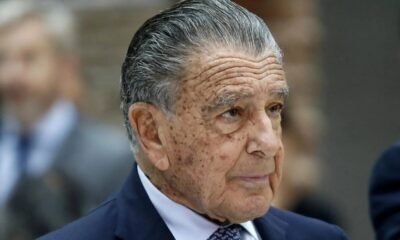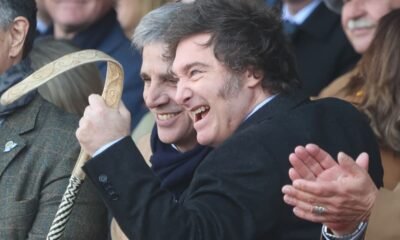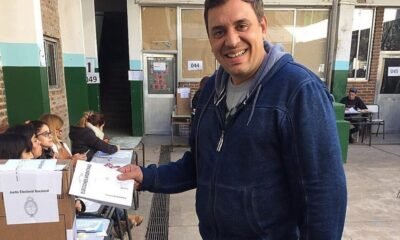INTERNACIONAL
EEUU y Japón acordaron avanzar en las negociaciones comerciales luego de una reunión en Washington

Altos funcionarios de Estados Unidos y Japón acordaron iniciar de inmediato consultas técnicas para profundizar los avances obtenidos durante una nueva ronda de negociaciones comerciales celebrada el jueves en Washington, según informó el Departamento del Tesoro en un comunicado emitido el viernes.
En el encuentro participaron el secretario del Tesoro, Scott Bessent; el secretario de Comercio, Howard Lutnick; el representante comercial, Jamieson Greer; y el ministro japonés de Revitalización Económica y Nuevo Capitalismo, Ryosei Akazawa. El Departamento del Tesoro destacó que las partes mantuvieron “conversaciones francas y constructivas sobre comercio justo y recíproco”.
Durante el diálogo, Bessent subrayó ante Akazawa la relevancia de abordar tanto medidas arancelarias como no arancelarias, y remarcó la relación entre seguridad económica y seguridad nacional, uno de los ejes del enfoque estadounidense en materia comercial.
Al término de la reunión, Akazawa calificó positivamente la segunda ronda de negociaciones con la administración de Donald Trump. “Logramos avances gracias a una conversación franca y constructiva para alcanzar un acuerdo que beneficie tanto a Japón como a Estados Unidos lo antes posible”, declaró a medios nipones.

No obstante, advirtió que cada negociación es única y que no habrá acuerdo final hasta que se cierre completamente el conjunto de temas tratados. En cuanto a los sectores automotriz y agrícola, considerados estratégicos, Akazawa afirmó: “No tenemos intención de negociar de forma que perjudique nuestros intereses nacionales. Protegeremos lo que sea necesario y diremos lo que sea necesario”.
El primer ministro japonés, Shigeru Ishiba, reconoció el viernes que no hay certeza sobre cuándo concluirán las negociaciones. “Tienen sus argumentos y nosotros también tenemos los nuestros”, dijo a la prensa. La próxima ronda está programada para las próximas semanas de mayo.
Tokio ha reclamado insistentemente a la Casa Blanca la exención de nuevos aranceles sobre la industria automotriz, una de las más afectadas por las recientes medidas de la administración Trump.
Japón considera estas tasas particularmente perjudiciales, dado que Estados Unidos representa su principal mercado de exportación en ese sector.
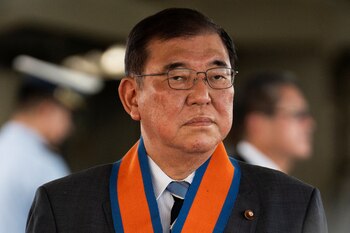
El Banco de Japón (BoJ) redujo el jueves su previsión de crecimiento del producto interior bruto (PIB) nacional para el ejercicio 2025 hasta el 0,5%, frente al 1,1% estimado previamente en enero, según su informe trimestral de perspectivas económicas, citado por la agencia EFE.
El recorte obedece al impacto de la guerra comercial global, que continúa afectando las exportaciones y la inversión de las empresas japonesas, sectores clave en la estructura económica del país. El BoJ advirtió que la incertidumbre en torno a los flujos comerciales y las cadenas de suministro sigue siendo alta.
La decisión fue tomada durante la reunión de política monetaria del banco central, en la que los gobernadores analizaron las condiciones externas adversas que presionan el desempeño económico. Aunque el consumo interno se mantiene estable, las tensiones arancelarias están debilitando la demanda externa, especialmente en los mercados de Estados Unidos y China.
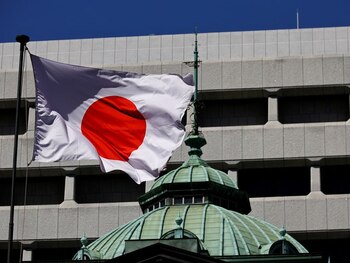
El BoJ mantuvo sin cambios su política de tipos de interés, aunque señaló que seguirá observando de cerca la evolución de los precios y los indicadores de actividad, sin descartar futuras intervenciones en caso de un mayor deterioro del entorno internacional.
(Con información de EFE y REUTERS)
Asia / Pacific,Diplomacy / Foreign Policy,MANILA
INTERNACIONAL
El papa León XIV recibió al enviado del patriarca Cirilo en el Vaticano en un gesto de acercamiento con la Iglesia Ortodoxa Rusa

El Vaticano fue escenario este sábado del primer encuentro entre el papa León XIV y el metropolita Antoni, jefe de relaciones exteriores de la Iglesia Ortodoxa Rusa y emisario del patriarca Cirilo, según comunicó el patriarcado de Moscú. El encuentro se produce en un contexto de relaciones distantes entre ambas Iglesias, marcadas por la postura del patriarca ortodoxo frente a la guerra en Ucrania.
Durante la reunión, Antoni transmitió a León XIV “los saludos en nombre de Cirilo y las felicitaciones por su elección como Primado de la Iglesia Católica Romana”, informó el comunicado del patriarcado ruso. El papa, en respuesta, expresó su gratitud a Cirilo “por sus buenos deseos y destacó la importancia de desarrollar las relaciones con la Iglesia Ortodoxa Rusa”. Según la nota, el diálogo incluyó cuestiones sobre el estado de las relaciones ortodoxo-católicas y los conflictos internacionales, con especial foco en Ucrania y Medio Oriente.
En el curso de la conversación, Antoni denunció ante el pontífice la situación de la Iglesia Ortodoxa Ucraniana, aludiendo a una persecución sufrida en el actual contexto de conflicto armado. En declaraciones previas al diario La Repubblica, el metropolita manifestó su expectativa de debatir las “perspectivas de desarrollo de las relaciones entre la Iglesia Ortodoxa Rusa y la Iglesia Católica”, subrayando la necesidad de fortalecer la cooperación cristiana en un “mundo en rápida secularización”.
El papa León XIV, primer estadounidense —nacionalizado peruano— en asumir el cargo, accedió al pontificado en mayo y desde entonces ha promovido esfuerzos diplomáticos en favor de la paz. Hace semanas recibió en el Vaticano al presidente ucraniano Volodimir Zelensky y mantuvo conversaciones telefónicas con el presidente ruso Vladimir Putin. León XIV ha apelado al Kremlin para que realice un “gesto” a favor de la paz y propuso, a mediados de mayo, la mediación del Vaticano en las negociaciones entre las partes en conflicto. Sin embargo, el Kremlin descartó la Santa Sede como punto neutral para un diálogo, por lo que las conversaciones continuaron en la ciudad turca de Estambul.
El papa y el patriarca Cirilo mantuvieron en 2016 un histórico encuentro en Cuba, aunque desde el inicio de la guerra en Ucrania sus relaciones se enfriaron. Cirilo apoya abiertamente la invasión rusa, que califica de “guerra santa”, postura que motivó un cruce de declaraciones con el predecesor de León XIV, el papa Francisco. No obstante, el metropolita Antoni, nombrado jefe de relaciones exteriores en 2022, continuó los contactos con el Vaticano y estuvo presente en representación de Cirilo durante el funeral de Francisco.
En la entrevista concedida a La Repubblica días antes del encuentro, Antoni consideró que el anterior pontífice mantenía un “enfoque equilibrado” respecto a Ucrania, aunque señaló que desconocía de momento la posición de León XIV sobre el conflicto.

En un mensaje enviado este sábado a la asamblea nacional del movimiento católico Pax Christi en Estados Unidos, León XIV reiteró su llamado a la no violencia y recordó la importancia de que los católicos “se conviertan en creadores de paz en su vida cotidiana”. En el texto subrayó: “Entre los numerosos desafíos que nuestro mundo enfrenta actualmente, incluyendo los conflictos armados generalizados, las divisiones entre los pueblos y los desafíos de la migración forzada, los esfuerzos por promover la no violencia son más necesarios que nunca”.
León XIV también recordó el llamado que realizó al asumir el pontificado, afirmando que en la actualidad se necesita “una paz desarmada, humilde y perseverante”. Instó a los miembros de la Iglesia a que estén presentes “especialmente en las periferias”, y a que las comunidades locales sean “casas de paz” donde se practique la justicia y el perdón, reforzando así el papel reconciliador de la institución.
El metropolita Antoni ha ocupado la jefatura de relaciones exteriores del patriarcado de Moscú desde 2022, año de la invasión rusa a Ucrania. Anteriormente, desempeñó el cargo de enviado de la Iglesia ortodoxa en Italia, participando activamente en la interlocución entre Moscú y la Santa Sede en medio de un escenario internacional tenso.
(Con información de AFP y EFE)
Europe,Religion / Belief,VATICAN CITY
INTERNACIONAL
DNI Tulsi Gabbard declassified Trump-Russia docs: Here’s what they say
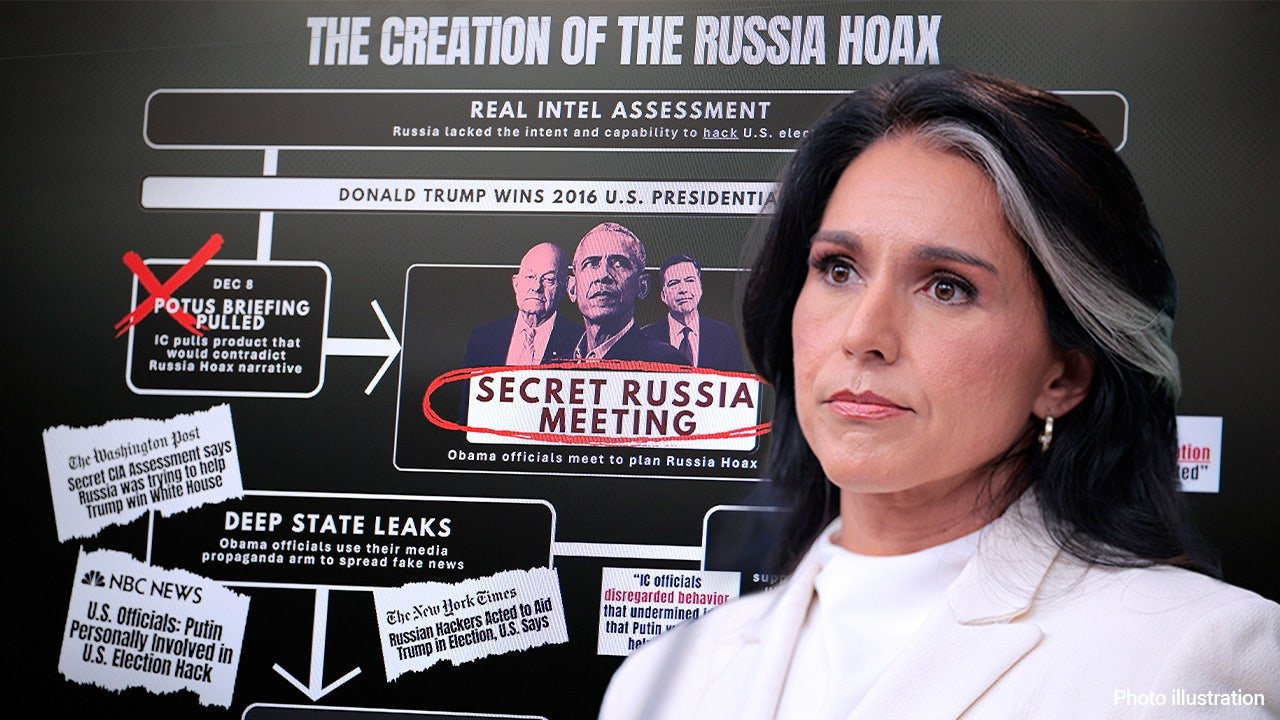
NEWYou can now listen to Fox News articles!
Director of National Intelligence Tulsi Gabbard declassified a slew of documents this month, revealing that Obama administration officials «manufactured» intelligence to push the Trump-Russia collusion narrative.
Director of National Intelligence Tulsi Gabbard talks to reporters in the Brady Press Briefing Room at the White House July 23, 2025, in Washington, DC., after releasing newly declassified documents about the Trump-Russia collusion «hoax.» (Chip Somodevilla/Getty Images; Fox News Digital)
Here’s a look at the newly declassified records:
Declassified Presidential Daily Brief
Documents revealed that in the months leading up to the November 2016 election, the intelligence community consistently assessed that Russia was «probably not trying … to influence the election by using cyber means.»
One instance was on Dec. 7, 2016, weeks after the election. Then-Director of National Intelligence James Clapper’s talking points stated, «Foreign adversaries did not use cyberattacks on election infrastructure to alter the U.S. presidential election outcome.»
Fox News Digital obtained a declassified copy of the Presidential Daily Brief, which was prepared by the Department of Homeland Security, with reporting from the CIA, Defense Intelligence Agency, FBI, National Security Agency, Department of Homeland Security, State Department and open sources, for Obama, dated Dec. 8, 2016.
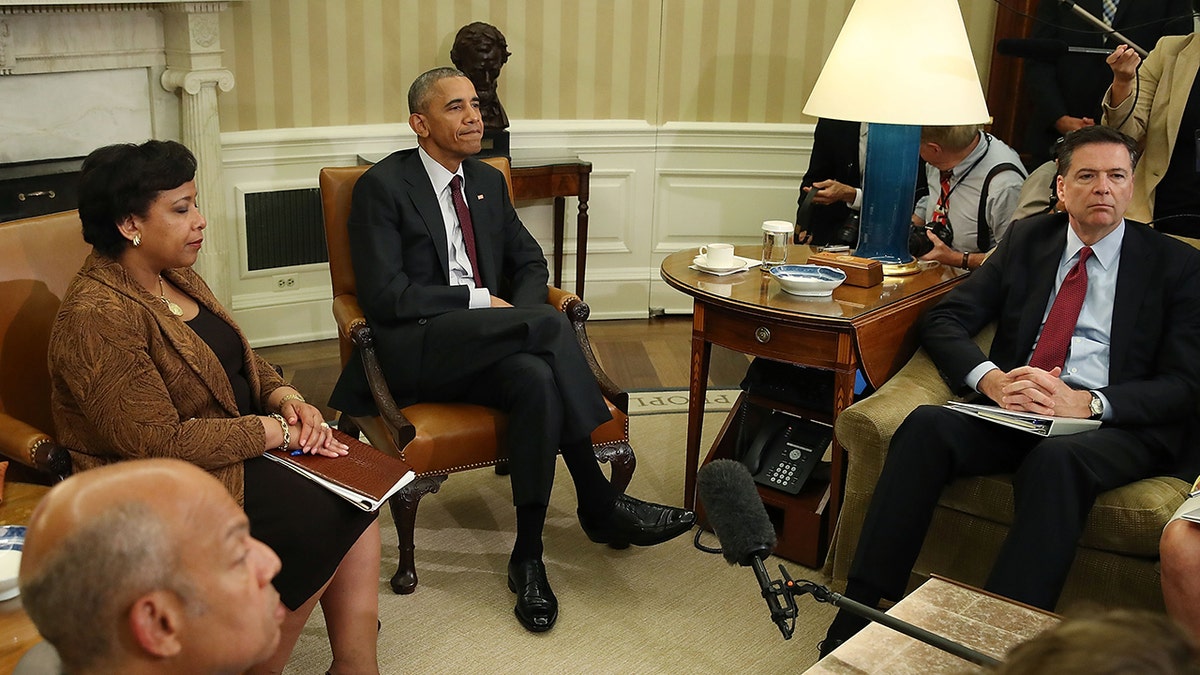
President Barack Obama speaks with reporters in the Oval Office July 19, 2016, after a meeting with Attorney General Loretta Lynch and FBI Director James Comey. (Mark Wilson/Getty Images)
«We assess that Russian and criminal actors did not impact recent U.S. election results by conducting malicious cyber activities against election infrastructure,» the Presidential Daily Brief stated. «Russian Government-affiliated actors most likely compromised an Illinois voter registration database and unsuccessfully attempted the same in other states.»
But the brief stated that it was «highly unlikely» the effort «would have resulted in altering any state’s official vote result.»
«Criminal activity also failed to reach the scale and sophistication necessary to change election outcomes,» it stated.
The brief noted that the Office of the Director of National Intelligence assessed that any Russian activities «probably were intended to cause psychological effects, such as undermining the credibility of the election process and candidates.»
The brief stated that cyber criminals «tried to steal data and to interrupt election processes by targeting election infrastructure, but these actions did not achieve a notable disruptive effect.»
Fox News Digital obtained declassified, but redacted, communications from the FBI in the Presidential Daily Brief, stating that it «should not go forward until the FBI» had shared its «concerns.»
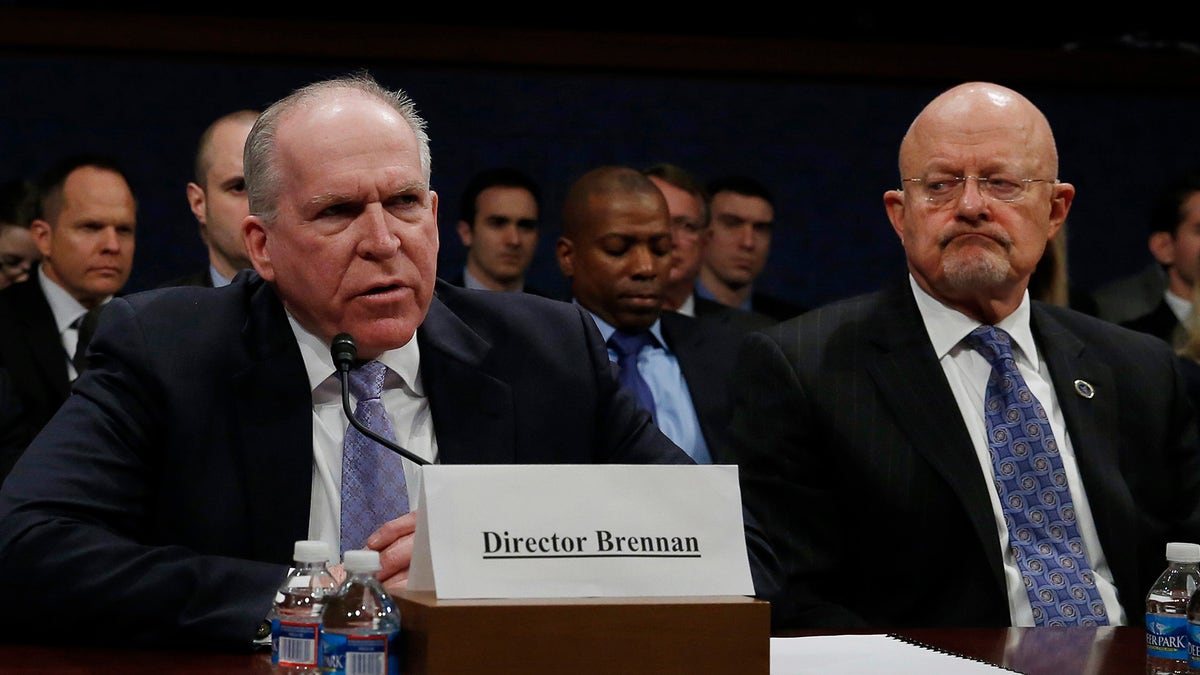
Former Director of National Intelligence James Clapper and former CIA Director John Brennan appear at a public hearing in Washington. (Reuters/Gary Cameron )
Those communications revealed that the FBI drafted a «dissent» to the original Presidential Daily Brief.
OBAMA ADMIN ‘MANUFACTURED’ INTELLIGENCE TO CREATE 2016 RUSSIAN ELECTION INTERFERENCE NARRATIVE, DOCUMENTS SHOW
The communications revealed that the brief was expected to be published Dec. 9, 2016, the following day, but later communications revealed the Office of the Director of National Intelligence, «based on some new guidance,» decided to «push back publication» of the Presidential Daily Brief.
«It will not run tomorrow and is not likely to run until next week,» wrote the deputy director of the Presidential Daily Brief at the Office of the Director of National Intelligence, whose name is redacted.
The following day, Dec. 9, 2016, a meeting convened in the White House Situation Room, with the subject line starting: «Summary of Conclusions for PC Meeting on a Sensitive Topic (REDACTED.)»
The meeting included top officials in the National Security Council, Clapper, then-CIA Director John Brennan, then-National Security Advisor Susan Rice, then-Secretary of State John Kerry, then-Attorney General Loretta Lynch, then-Deputy FBI Director Andrew McCabe, among others, to discuss Russia.
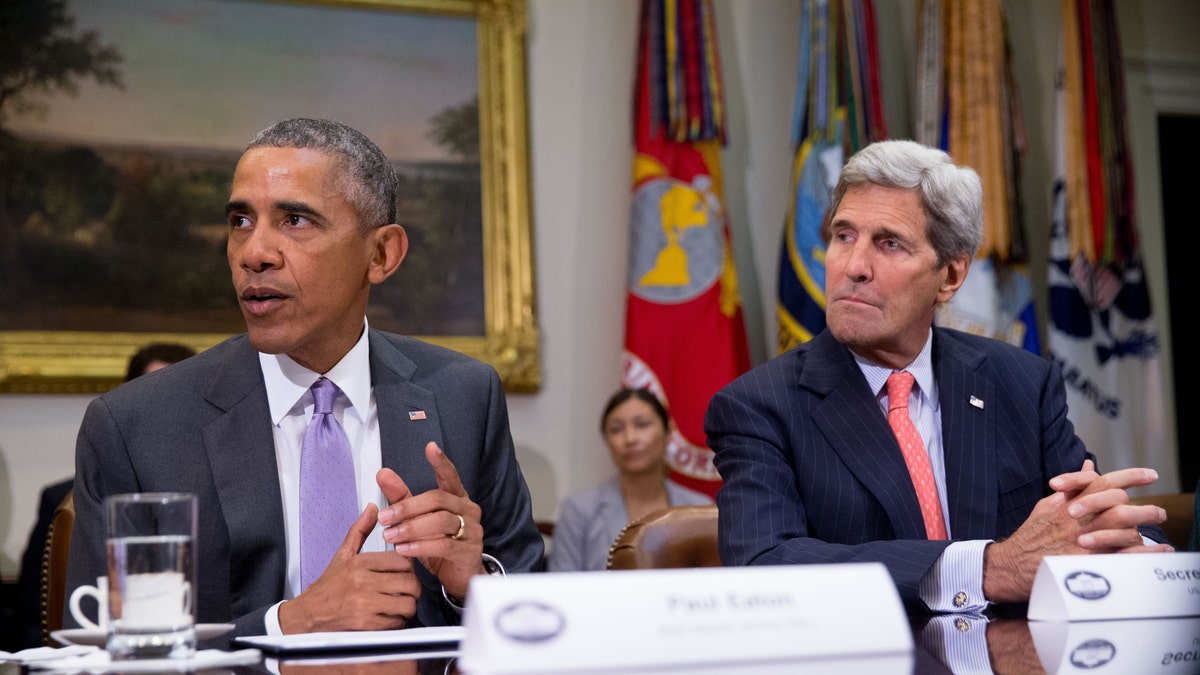
President Obama, accompanied by Secretary of State John Kerry, meets with veterans and Gold Star Mothers to discuss the Iran nuclear deal in the Roosevelt Room at the White House in Washington Sept. 10, 2015. (AP Images)
The declassified meeting record, obtained by Fox News Digital, revealed that principals «agreed to recommend sanctioning of certain members of the Russian military intelligence and foreign intelligence chains of command responsible for cyber operations as a response to cyber activity that attempted to influence or interfere with U.S. elections, if such activity meets the requirements» from an executive order that demanded the blocking of property belonging to people engaged in cyber activities.
After the meeting, according to the Office of the Director of National Intelligence, Clapper’s executive assistant emailed intelligence community leaders tasking them to create a new intelligence community assessment «per the president’s request» that detailed the «tools Moscow used and actions it took to influence the 2016 election.»
«ODNI will lead this effort with participation from CIA, FBI, NSA, and DHS,» the record states.
Later, Obama officials «leaked false statements to media outlets» claiming that «Russia has attempted through cyber means to interfere in, if not actively influence, the outcome of an election.»
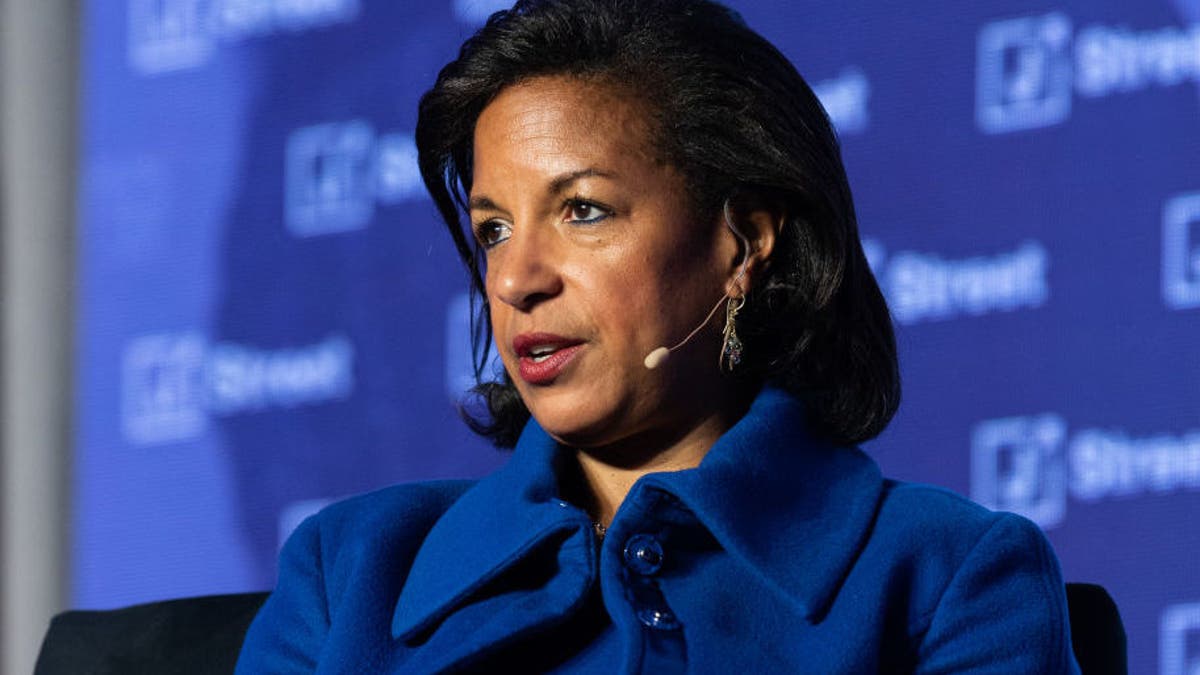
Former National Security Advisor Susan Rice speaks at the J Street National Conference in Washington in April 2018. (Getty Images)
By Jan. 6, 2017, a new Intelligence Community Assessment was released that, according to the Office of the Director of National Intelligence, «directly contradicted the IC assessments that were made throughout the previous six months.»
Intelligence officials told Fox News Digital that the ICA was «politicized» because it «suppressed intelligence from before and after the election showing Russia lacked intent and capability to hack the 2016 election.»
Officials also said it deceived the American public «by claiming the IC made no assessment on the ‘impact’ of Russian activities,» when the intelligence community «did, in fact, assess for impact.»
«The unpublished December PDB stated clearly that Russia ‘did not impact’ the election through cyber hacks on the election,» an official told Fox News Digital.
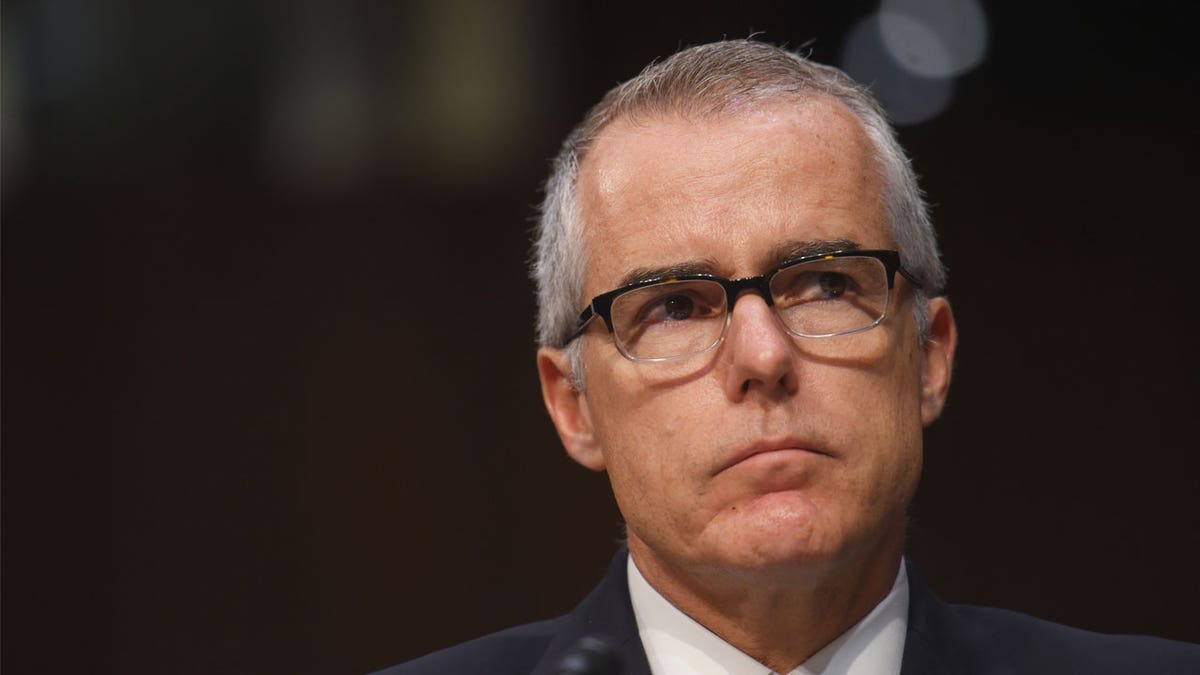
Former FBI Deputy Director Andrew McCabe testifies during a congressional hearing in Washington. (Jahi Chikwendiu/The Washington Post via Getty Images)
FBI LAUNCHES CRIMINAL INVESTIGATIONS OF JOHN BRENNAN, JAMES COMEY: DOJ SOURCES
The official also said the ICA had assessed that «Russia was responsible for leaking data from the DNC and DCCC,» while «failing to mention that FBI and NSA previously expressed low confidence in this attribution.»
Officials said the intelligence was «politicized» and then «used as the basis for countless smears seeking to delegitimize President Trump’s victory, the years-long Mueller investigation, two Congressional impeachments, high level officials being investigated, arrested, and thrown in jail, heightened US-Russia tensions, and more.»
Declassified House Intelligence Committee Report
A report prepared by the House Permanent Select Committee on Intelligence in 2020 said the intelligence community did not have any direct information that Russian President Vladimir Putin wanted to help elect Donald Trump during the 2016 presidential election, but, at the «unusual» direction of then-President Barack Obama, published «potentially biased» or «implausible» intelligence suggesting otherwise.
The report, based on an investigation launched by former House Intelligence Committee Chairman Devin Nunes, R-Calif., was dated Sept. 18, 2020. At the time of the publication of the report, Rep. Adam Schiff, D-Calif., was the chairman of the committee.
The report has never before been released to the public and instead has remained highly classified within the intelligence community.
Fox News Digital obtained the «fully-sourced limited-access investigation report that was drafted and stored in a limited-access vault at CIA Headquarters.» The report includes some redactions.
BRENNAN DIRECTED PUBLICATION OF ‘IMPLAUSIBLE’ REPORTS CLAIMING PUTIN PREFERRED TRUMP IN 2016, HOUSE FOUND
The committee focused on the creation of the Intelligence Community Assessment of 2017, in which then-CIA Director John Brennan pushed for the inclusion of the now-discredited anti-Trump dossier despite knowing it was based largely on «internet rumor,» as Fox News Digital previously reported.
According to the report, the ICA was a «high-profile product ordered by the President, directed by senior IC agency heads, and created by just five CIA analysts, using one principal drafter.»
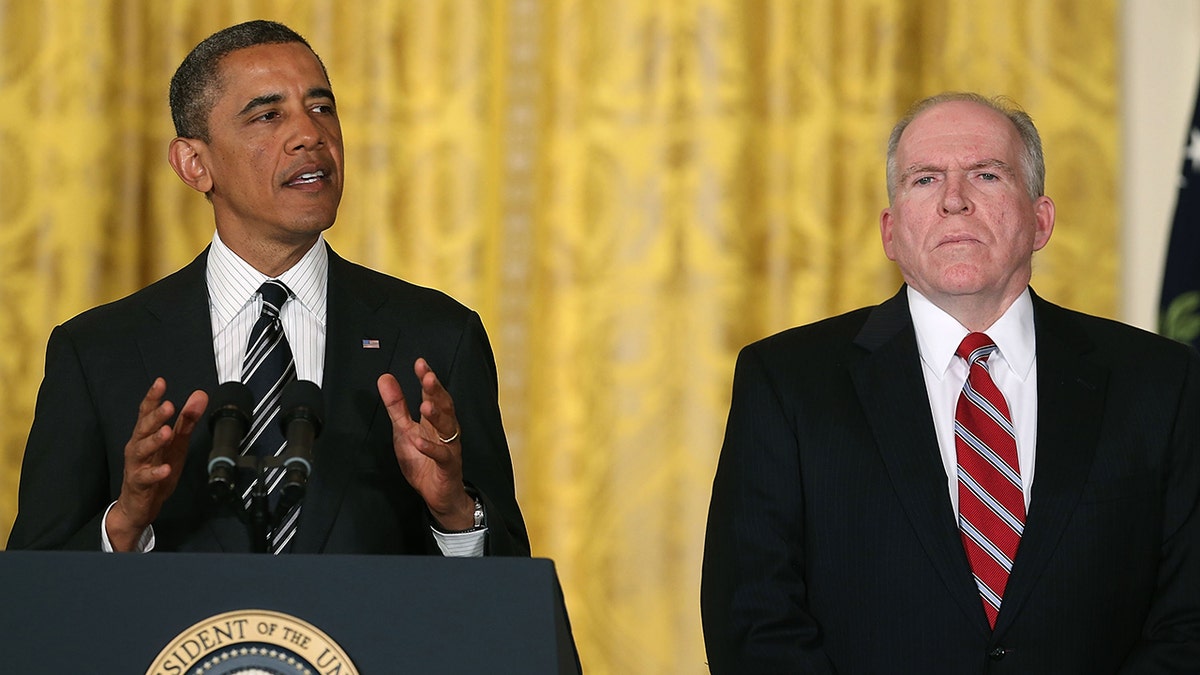
President Obama nominates John Brennan as CIA director during a ceremony at the White House Jan. 7, 2013. (Mark Wilson/Getty Images)
«Production of the ICA was subject to unusual directives from the President and senior political appointees, and particularly DCIA,» the report states. «The draft was not properly coordinated within CIA or the IC, ensuring it would be published without significant challenges to its conclusions.»
The committee found that the five CIA analysts and drafter «rushed» the ICA’s production «in order to publish two weeks before President-elect Trump was sworn-in.»
«Hurried coordination and limited access to the draft reduced opportunities for the IC to discover misquoting of sources and other tradecraft concerns,» the report states.
The report states that Brennan «ordered the post-election publication of 15 reports containing previously collected but unpublished intelligence, three of which were substandard — containing information that was unclear, of uncertain origin, potentially biased, or implausible — and those became foundational sources for the ICA judgements that Putin preferred Trump over Clinton.»
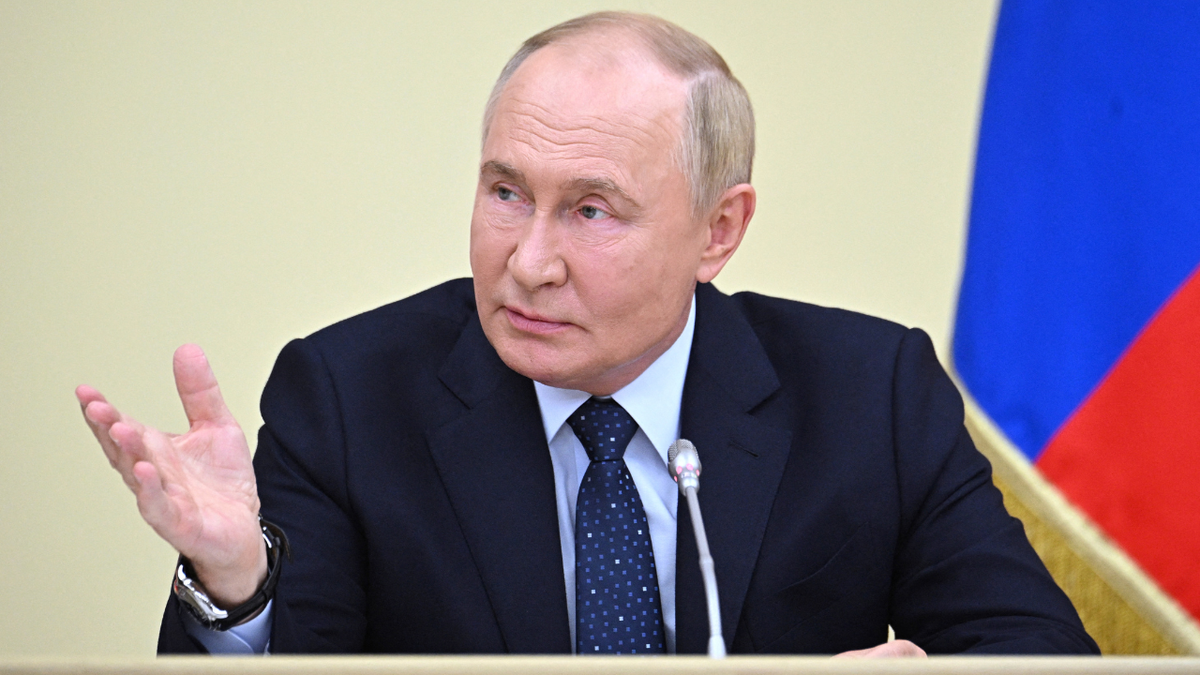
Russian President Vladimir Putin chairs a government meeting at his Novo-Ogaryovo residence Aug. 7, 2024. (Sergei Bobylyov/Pool/AFP via Getty Images)
«The ICA misrepresented these reports as reliable, without mentioning their significant underlying flaws,» the committee found.
«One scant, unclear, and unverifiable fragment of a sentence from one of the substandard reports constitutes the only classified information cited to suggest Putin ‘aspired’ to help Trump win,» the report states, adding that the ICA «ignored or selectively quoted reliable intelligence reports that challenged — and in some cases undermined — judgments that Putin sought to elect Trump.»
The report also states that the ICA «failed to consider plausible alternative explanations of Putin’s intentions indicated by reliable intelligence and observed Russian actions.»
The committee also found that two senior CIA officers warned Brennan that «we don’t have direct information that Putin wanted to get Trump elected.»
Despite those warnings, the Obama administration moved to publish the ICA.
The ICA «did not cite any report where Putin directly indicated helping Trump win was the objective.»
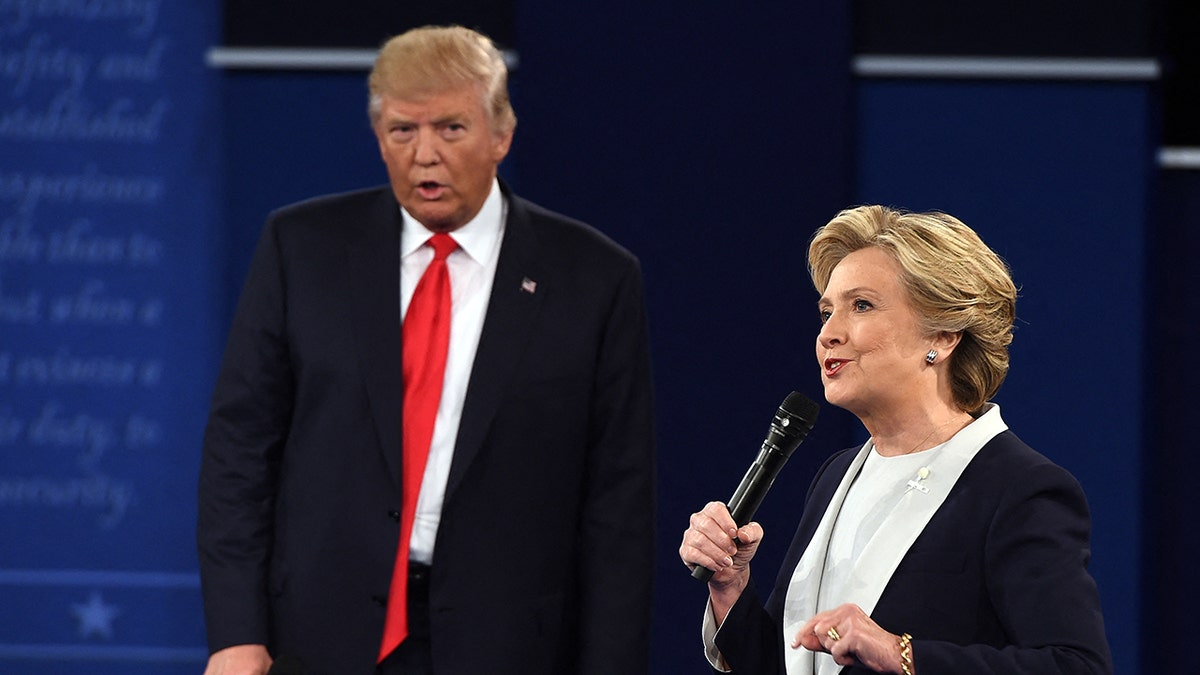
Hillary Clinton and Donald Trump participate in the second presidential debate at Washington University in St. Louis Oct. 9, 2016. (Robyn Beck/AFP via Getty Images)
The ICA, according to the report, excluded «significant intelligence» and «ignored or selectively quoted» reliable intelligence in an effort to push the Russia narrative.
The report also includes intelligence from a longtime Putin confidant who explained to investigators that «Putin told him he did not care who won the election,» and that Putin «had often outlined the weaknesses of both major candidates.»
The report also states that the ICA omitted context showing that the claim that Putin preferred Trump was «implausible —if not ridiculous.»
The committee also found that the ICA suppressed intelligence that showed that Russia was actually planning for a Hillary Clinton victory because «they knew where (she) stood» and believed Russia «could work with her.»
The committee also noted that the ICA «did not address why Putin chose not to leak more discrediting material on Clinton, even as polls tightened in the final weeks of the election.»
The committee also found that the ICA suppressed intelligence showing that Putin was «not only demonstrating a clear lack of concern for Trump’s election fate,» but also indicated «that he preferred to see Secretary Clinton elected, knowing she would be a more vulnerable President.»
Declassified Hillary Clinton section of House Intelligence Committee Report
One section of the declassified House Intelligence Committee report states that the material in Putin’s possession included Russian intelligence on Democratic National Committee information allegedly showing that senior Democratic leaders found Clinton’s health to be «extraordinarily alarming.»
«As of September 2016, the Russian Foreign Intelligence Service had DNC information that President Obama and Party leaders found the state of Secretary Clinton’s health to be ‘extraordinarily alarming,’ and felt it could have ‘serious negative impact’ on her election prospects,» the report states. «Her health information was being kept in ‘strictest secrecy’ and even close advisors were not being fully informed.»
The Russian Foreign Intelligence Service also allegedly had DNC communications that showed that «Clinton was suffering from ‘intensified psycho-emotional problems, including uncontrolled fits of anger, aggression, and cheerfulness.’»
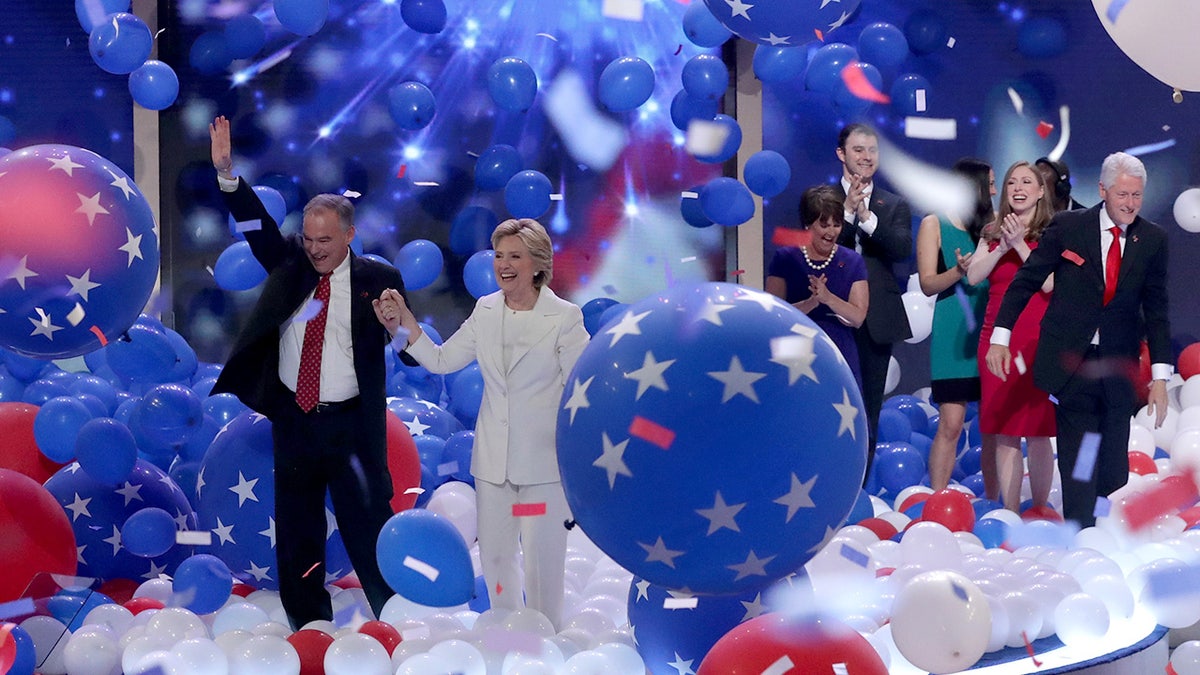
Democratic presidential nominee Hillary Clinton and her running mate, Sen. Tim Kaine ,appear onstage with their families at the Democratic National Convention in Philadelphia July 28, 2016. (Alex Wong/Getty Images)
«Clinton was placed on a daily regimen of ‘heavy tranquilizers’ and while afraid of losing, she remained ‘obsessed with a thirst for power,’» the report states.
The Russians also allegedly had information that Clinton «suffered from ‘Type 2 diabetes, Ischemic heart disease, deep vein thrombosis, and chronic obstructive pulmonary disease.’»
HILLARY CLINTON AIDE DISMISSES TULSI GABBARD’S CLAIMS AS ‘RIDICULOUS’
The Russians also allegedly possessed a «campaign email discussing a plan approved by Secretary Clinton to link Putin and Russian hackers to candidate Trump in order to ‘distract the American public’ from the Clinton email server scandal.»
Gabbard, during the White House press briefing Wednesday, said there were «high-level DNC emails that detailed evidence of Hillary’s, quote, psycho-emotional problems, uncontrolled fits of anger, aggression and cheerfulness, and that then-Secretary Clinton was allegedly on a daily regimen of heavy tranquilizers.»
CLICK HERE TO GET THE FOX NEWS APP
A tranquilizer is a drug used to reduce mental disturbance, such as anxiety and tension. Tranquilizers are typically prescribed to individuals suffering from anxiety, sleep disturbances and related conditions affecting their mental and physical health.
A Clinton aide dismissed the claims as «ridiculous.»
Neither Clinton nor Obama responded to Fox News Digital’s requests for comment.
INTERNACIONAL
Donald Trump juega al golf en Escocia y cientos de personas protestan contra su visita
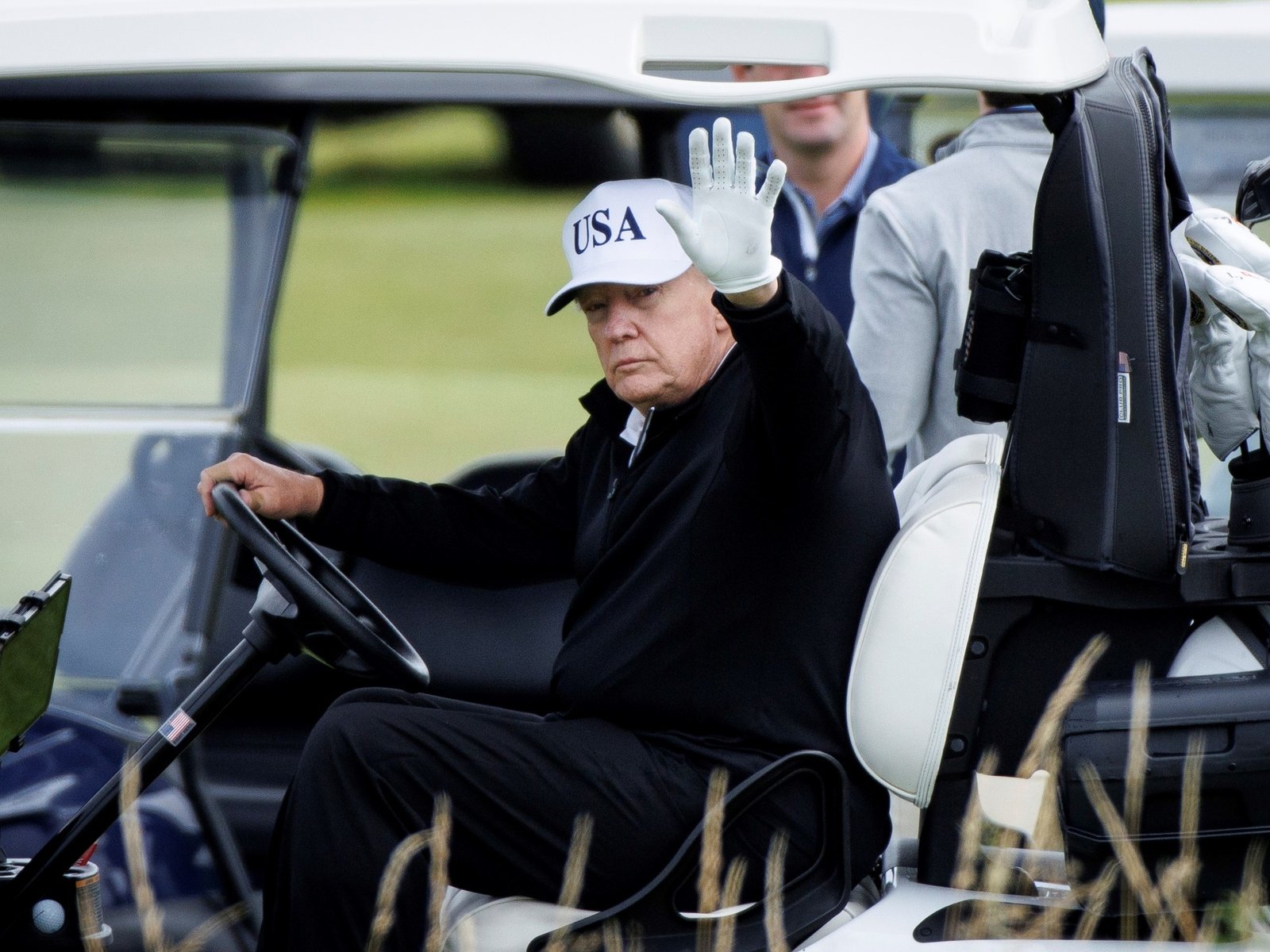
Seguridad, polémica y críticas por la inmigración en Europa
Opiniones divididas
Negociaciones con la Unión Europea por los aranceles
Donald Trump,Escocia

 POLITICA2 días ago
POLITICA2 días agoLa justicia de Santa Cruz desafío a la Corte Suprema e incluyó a Cristina Kirchner en el padrón electoral

 POLITICA2 días ago
POLITICA2 días agoCristina Kirchner pidió salir a militar para que los que “están hambreando a la gente tengan su merecido en las urnas”

 POLITICA2 días ago
POLITICA2 días agoEl candidato libertario por el que Kicillof despidió a 24 policías denunció “una cacería de brujas” en la Provincia



























